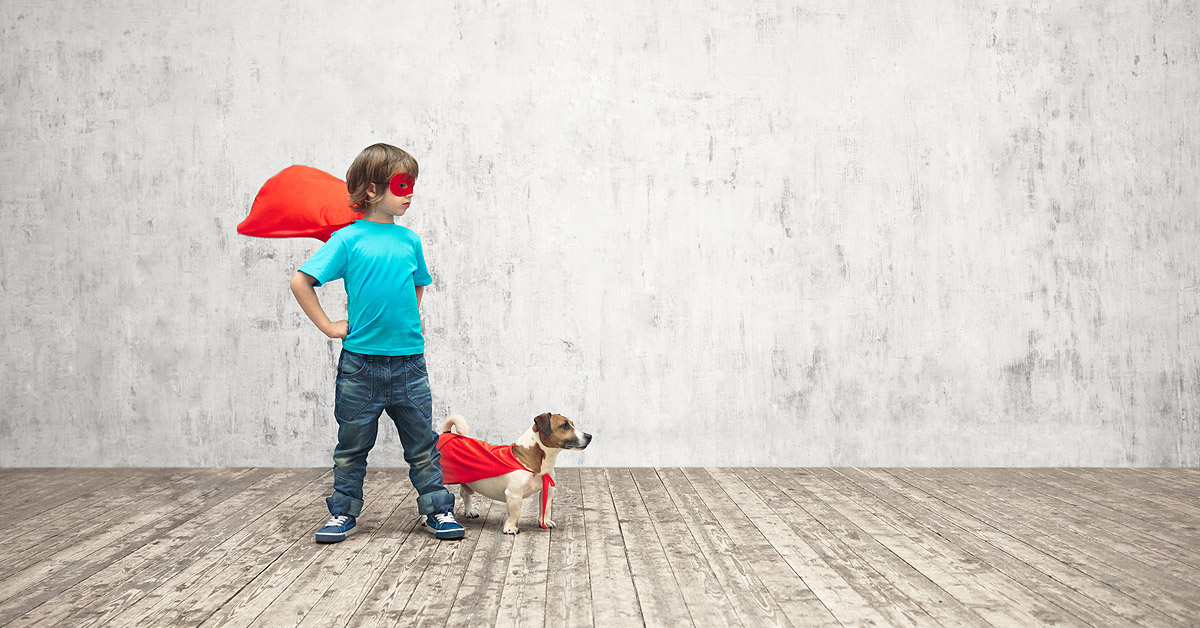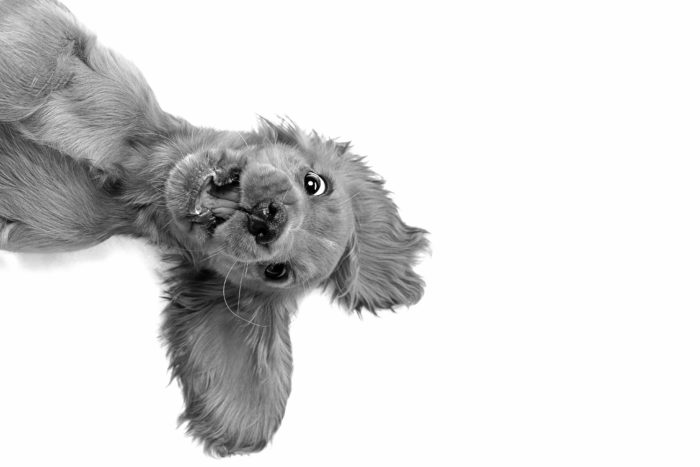A New Life Together
In this final installment of our series, we’ll get you ready for the car ride home and walk you through what to expect in the early days. We will provide links that show fun things to do. It is important to do these exercises with your puppy, as they learn best before 16 weeks of age. Take advantage of this time to get them used to their environment (“socialization”). This is a top priority.
Car Ride Home
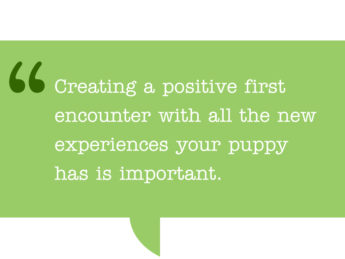 Creating a positive first encounter with all the new experiences your puppy has is important. Be prepared and think about all new encounters. Make sure you have treats and a couple of toys with you when you go pick up your puppy.
Creating a positive first encounter with all the new experiences your puppy has is important. Be prepared and think about all new encounters. Make sure you have treats and a couple of toys with you when you go pick up your puppy.
Your pup may be stressed.
This may be the very first time pup is separated from littermates and mom. Your puppy may never have worn a harness or collar or experienced a leash. There will now be lots of firsts.
If possible hold the pup during the car ride home. Take a partner so someone can hold the pup during the drive. A crate can be used too if that is your preference. Depending on the length of the trip you may need to alternate between the crate and holding the pup.
Supplies to bring
• A blanket or towel for the seat or your lap
• Paper towel – poo bags
• Water and a water bowl
• Harness, collar, leash
• A variety of food treats
• Bring a few options for the pup to chew on too – bullies are a good bet
You will need to stop along the way for a bathroom break. Use a word or phrase that will become the pup’s elimination cue, like “show me”, or “do the business”… you get the idea. Be sure and treat the puppy for going.
Arrival Home
Take pup directly to the chosen bathroom spot immediately upon arriving home, even before the pup goes into the house for the first time. Keep the pup on a leash. Be prepared with a treat if the pup goes.
Honeymoon Period
There is a honeymoon period for the first week or so when you bring a new pup home. Your puppy may be quiet, more placid, and not very nippy. He is dealing with a lot of newness. As he acclimates to his new home he will start to change. You will know when the honeymoon is over.
Dealing with Barking or Whining in the Crate
Ignore it. As hard as it can be ignoring the barking is the best approach. Any talking to the pup, cooing or letting the pup out will just make the process longer. Expect a day or two of barking and or whining and expect it to get loud. It’s a bonus and a small miracle if it doesn’t get loud. Be prepared with lots of good things for the pup to chew on in the crate – always toss a few treats in the crate every time your pup goes in. Keep a jar of treats on top of the crate, this way you are always prepared.
Get A Rhythm Going
It is nice to do the introduction to your home on a leash. Take the pup around so he knows about his new environment.
Provide lots of bathroom breaks at the chosen spot. Every 15 – 20 minutes if the pup is out of the crate.
Remember 100% supervision. No free time unless you are there and paying attention.
Tips for the First Night
Expect some sleep deprivation.
Set an alarm to get up for bathroom breaks. Take the pup on a leash, use your verbal cue, and reward.
You may want to keep the crate in the bedroom so the pup feels safe and knows you’re nearby.
Tips for the First Week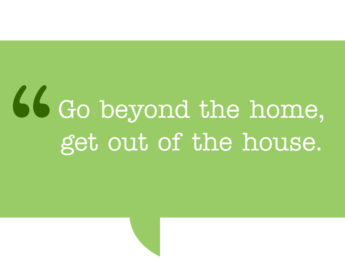
If you work at home or have taken some time off from work, make sure the pup gets some time alone in the home. You want him prepared for spending some time alone when you need a break and for your eventual return to work. There should be no big hellos and goodbyes. Just get out of the house and leave the pup alone for an hour or two in the crate. He needs to learn that your coming and going is normal.
100% Supervision
There should be zero unattended time outside the crate. This is lethal for a new puppy. It is much easier to prevent annoying behavior than it is to change it. Think prevention versus cure.
Pups need lots of sleep and lots of quiet time. Lots of crate time.
Keep the leash on in the house to help with the management of your pup. Have lots of chews available for your pup to chew on.
Be proactive and set your pup up to succeed. Build good habits from day one with structure, training, playing, exploring, the crate, etc.
Socialization Checklist
Here’s a handy sheet for you to use for inspiration for your early introductions, aka socialization.
Your puppy should be meeting lots of new people and getting treats from everyone.
Take walks through the neighborhood, and don’t worry if you carry the puppy a lot, in the beginning, this is fine, fun, and normal.
Make sure you have your treat pouch full of a variety of tasty, soft treats that your pup loves.
Plan a couple of socialization field trips in advance that you will do during the first week. Book a fun vet visit. Ensuring a variety of new experiences is essential. Go beyond the home, get out of the house.
Games and Training
There are lots of fun games and new behaviors to teach your puppy. Keep sessions short, reward all the behaviors you want to see more of.
Patience & A Sense of Humor
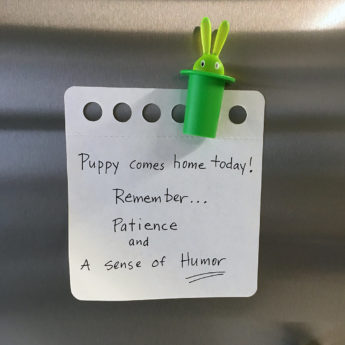
There are two things we want you to always keep in mind as you raise this puppy. Patience and a sense of humor; write this on a piece of paper and stick it on the refrigerator.
Here’s to all the adventures that await you and your dog.

